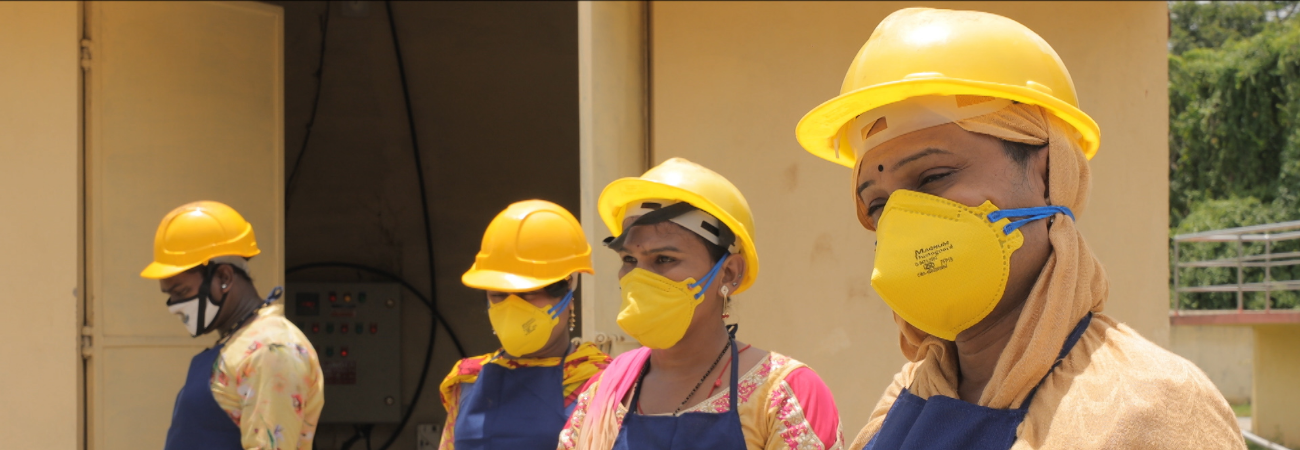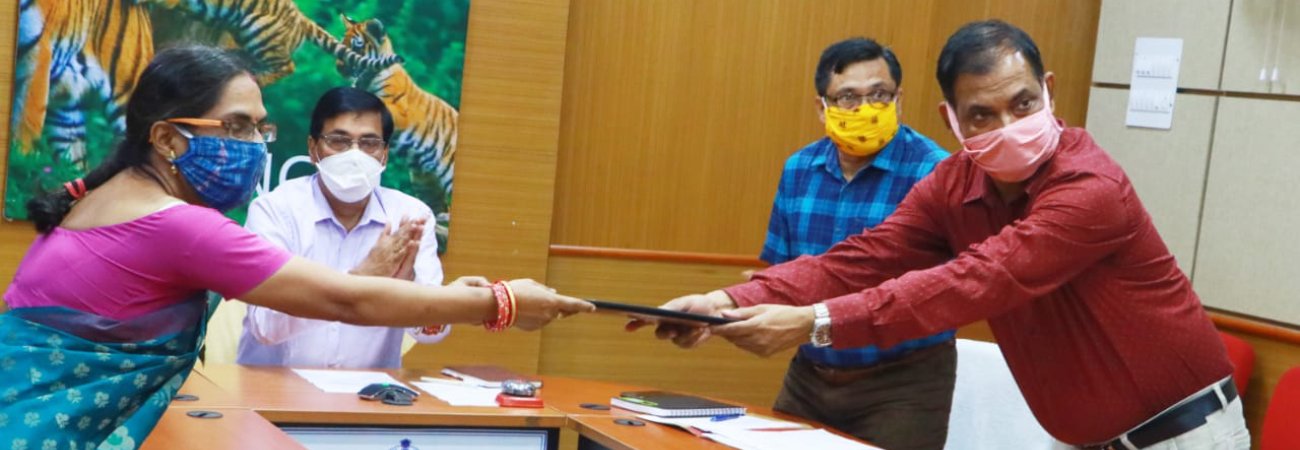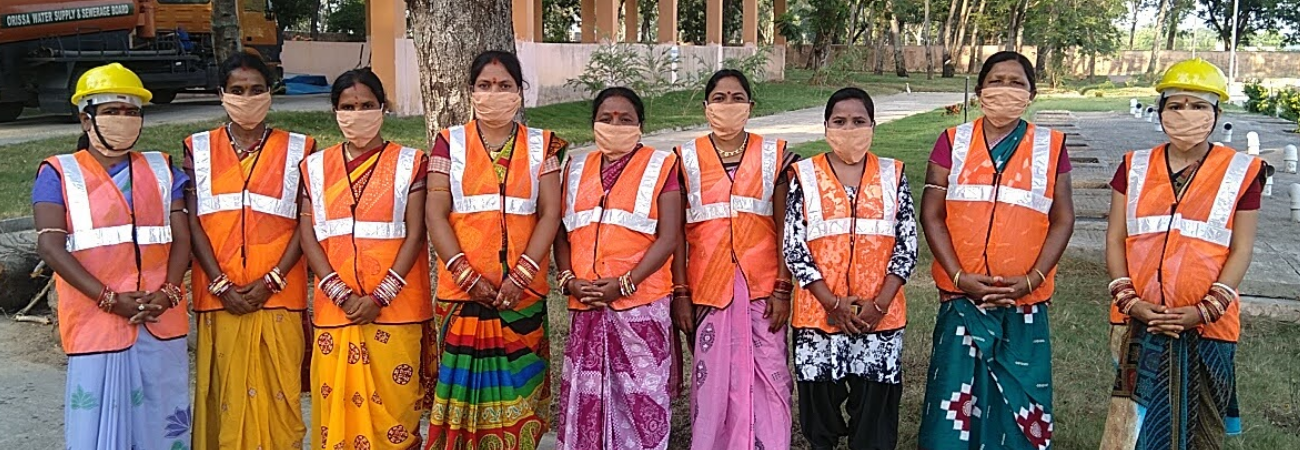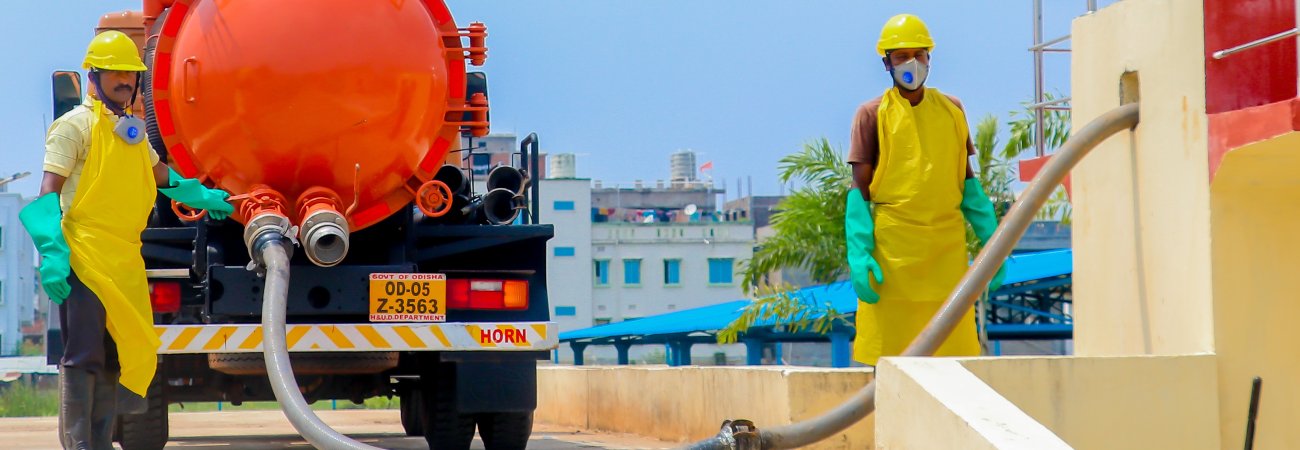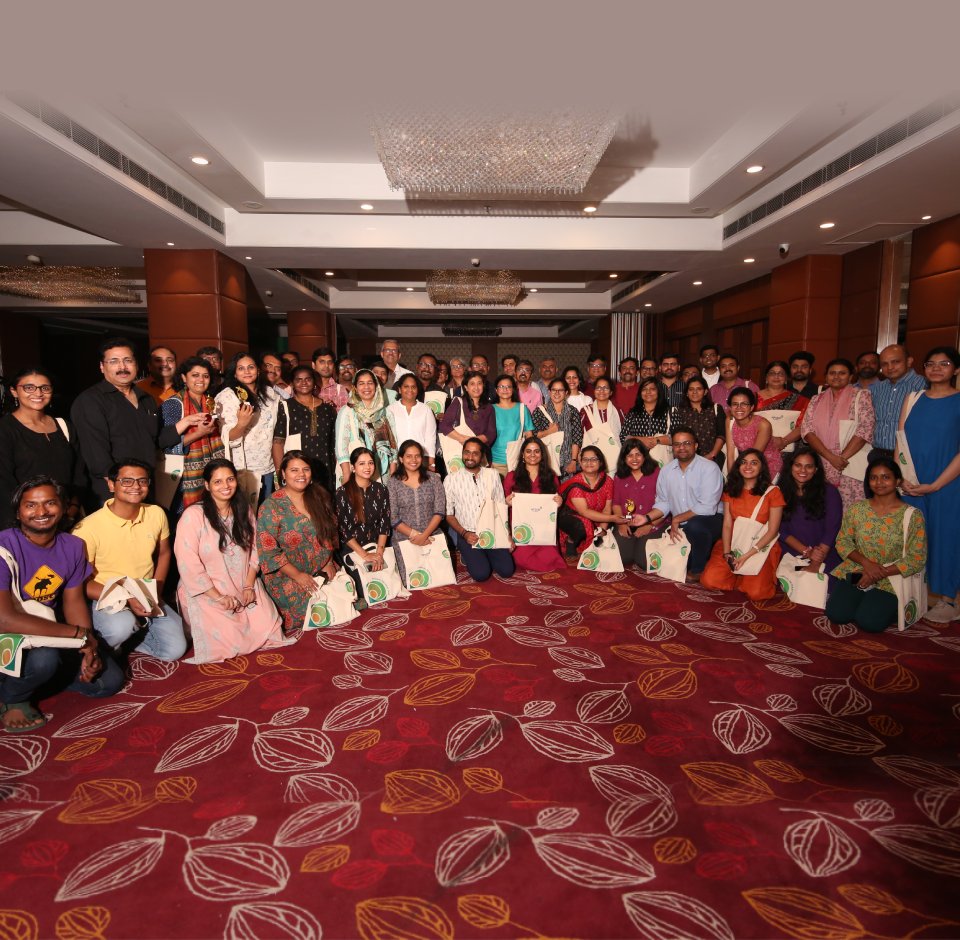Sanitation in India presents a complex challenge of ensuring access to toilets for the marginalized but also taking a step further to ensure there are efficient systems in place for treatment and disposal of human waste. With the Swachh Bharat Mission, millions of toilets were constructed across the country to ensure Indians have access to basic sanitation facilities and are on the path to being ODF. However, access to toilets is only a tip of the iceberg of challenges that the sector presents. Today, 1.4 billion Indians defecate 140 kg of excreta each year on average. 80% of this human waste is untreated and finds its way to open ground or water bodies, which in turn to be hazardous to both public health and environment. Lack of strong systems for disposal and treatment of human waste has a disproportionate impact on the lives of the most vulnerable communities who are the first ones to be exposed to untreated waste and the consequences of environmental damage. To ensure the safety and well-being of the most vulnerable, it is crucial for India to go beyond access and start focusing on safer treatment of human waste through Faecal Sludge and Septage Management (inclusive sanitation) – a decentralized solution that enables safe containment, emptying and transportation of faecal sludge and septage to a treatment plant.
The National Faecal Sludge and Septage Management (NFSSM) Alliance was formed in 2016 after recognizing the need for collaborative action and a unified voice working closely with the national/state governments and driving the discourse on FSSM and Inclusive Sanitation nationally. With support from the Bill and Melinda Gates Foundation, the NFSSM Alliance came together with the vision that by 2030, each and every Indian city (all 7900+) safely manage its human waste. With this audacious vision in mind, the NFSSM Alliance brought together 35+ diverse organizations (NGOs, CSOs, Academic Institutions, Think Tanks, etc.) working on Sanitation and its allied sectors from across the country. The NFSSM Alliance works in support from the Ministry of Housing and Urban Affairs (MoHUA) and the Department of Drinking Water and Sanitation (DWS) played an instrumental role in the passage of India’s first national policy on FSSM in 2017.
The National Faecal Sludge and Septage Management Alliance is a national working group focused on fostering Collaborative Action towards safe and sustainable human waste management at the national, state, and city levels. We work with our network of partners in 19+ states to build consensus and encourage discourse on inclusive sanitation in India.
